Disclaimer: This blog post contains affiliate links. If you make a purchase through these links, I may earn a small commission at no additional cost to you. Learn More. Thank you for supporting our garden community.
This is the Only Raspberry Fertilizer You’ll Need for Your Garden
Let’s get one thing straight: raspberries are hungry plants. They’ll suck up a ton of nutrients, and if you want a good harvest, you have to fertilize them. But that doesn’t mean you need a fancy raspberry fertilizer with a pretty label and a bloated price tag.
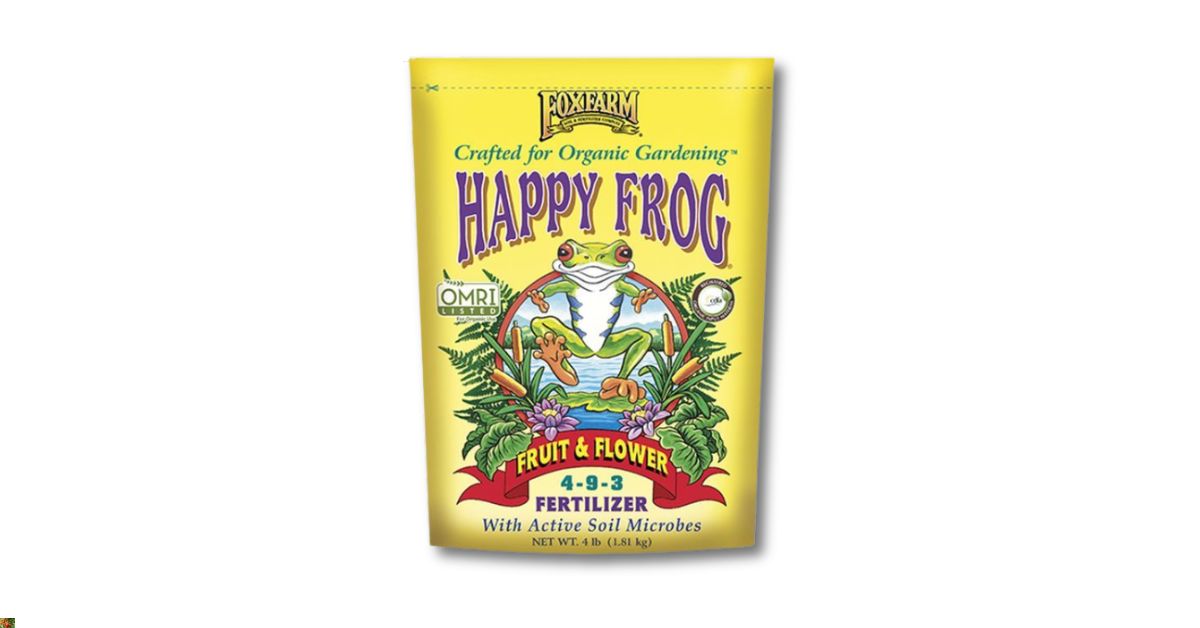
The Only Raspberry Fertilizer You Need
There’s a lot of conflicting advice out there about raspberry fertilizer. Some say you need high potassium, some say you need more nitrogen.
It’s very confusing. Thankfully, this article is not confusing.
I’ll get right to the point about which raspberry fertilizer you actually need and why it’s the best one. Don’t waste your money on other crap that you don’t need.
Let’s not waste any more time and get right into it.
Products:
FoxFarm fruit and flower fertilizer
Save 10% on your first Burpee seed order using code BURPEE10
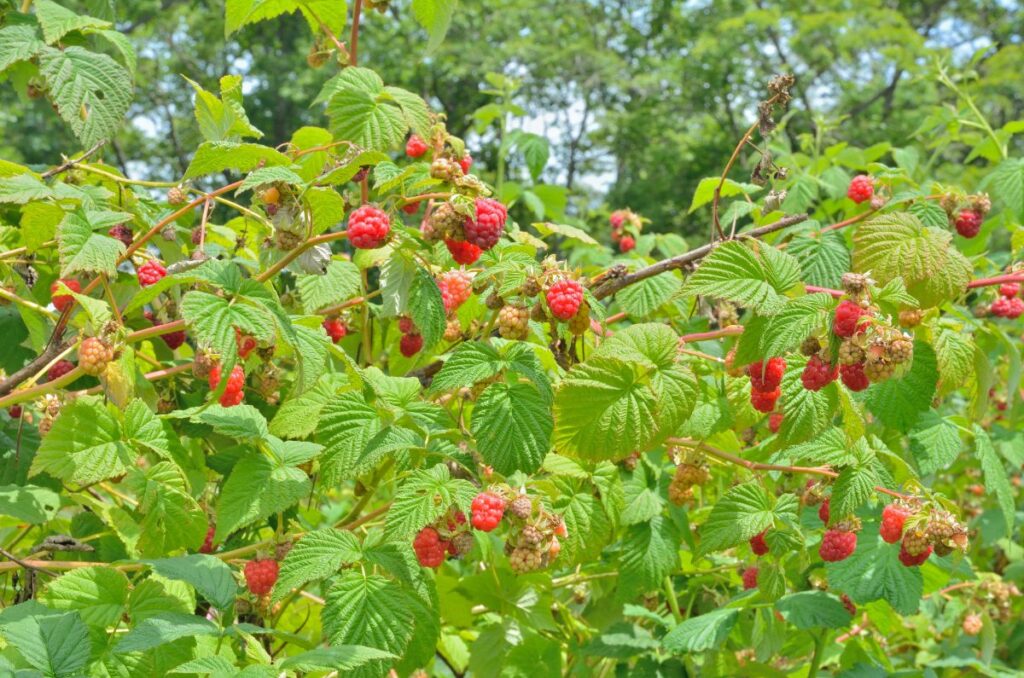
Do Raspberries Need Fertilizer?
Raspberries are heavy feeders, meaning they use up a ton of nutrients to grow properly and produce a ton of fruit.
They’re not like those delicate little flowers you throw in a pot and forget about. Raspberries need lots of organic matter, fertilizer and water to give you a good harvest.
They grow really fast, spread wide, put out a ton of leaves and roots, and they’ll give you some good fruit.
In their native growing conditions, they grow in very fertile soil, so they’re never left without nutrients. If you don’t fertilize them, then you’ll get weak canes and small fruit.
And the fruit probably won’t even taste that good.
What Nutrients do Raspberries Need? (Best NPK for Raspberries)
NPK stands for nitrogen, phosphorus, and potassium. Each letter is the symbol for each element on the periodic table.
Each number represents the percent by weight of each element in a fertilizer. Every commercial fertilizer has an NPK ratio on the package.
Let’s say, for example, a fertilizer has an NPK ratio of 3-7-1. That means it’s 3% nitrogen, 7% phosphorus, and 1% potassium by weight. Very simple.
I can’t and I won’t give you an exact NPK ratio for raspberry plants because that just doesn’t matter. It just doesn’t.
Anyone who says something like, “You NEED this NPK fertilizer for your raspberries” is lying. Raspberries can’t tell what NPK ratio they’re getting.
You need to understand what the main purpose of each nutrient is in a plant:
- Nitrogen (N): Nitrogen is used mainly for leafy growth. So people who tell you that raspberries don’t need a lot of nitrogen obviously have never actually grown raspberries. They put out a ton of dark green leaves that collect the energy for the developing fruits.
- Phosphorus (P): Phosphorus is mostly used for root, flower, and fruit development in raspberries. We all know how many roots, flowers, and fruits raspberries produce. If they don’t get enough phosphorus, you won’t get enough raspberries. Plain and simple.
- Potassium (K): Potassium is used for fruit development, disease resistance, and overall plant health. Together with phosphorus, it is necessary for healthy fruits. Plus, potassium helps with many of the physiological functions of raspberries.
These are the macronutrients that raspberries need, meaning they need them in the greatest quantities. If your plants don’t get them, you won’t get good raspberries.
They also need several micronutrients like calcium, magnesium, sulfur, and iron – the stuff that most cheap synthetic fertilizers don’t have.
These nutrients are also used for overall physiological functions.
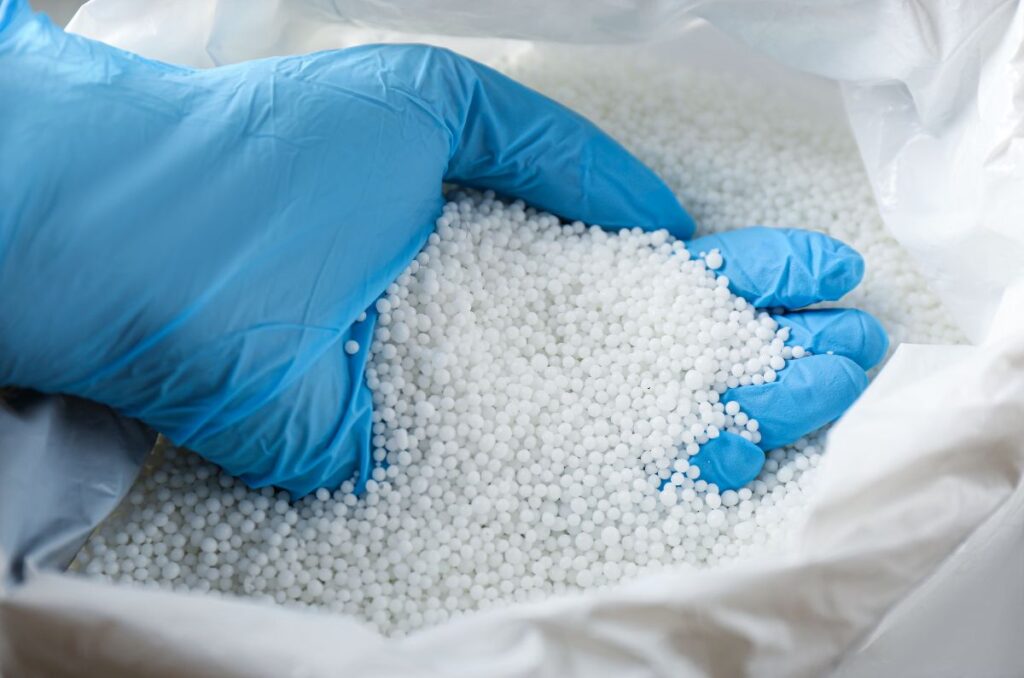
Are Synthetic or Organic Fertilizers Better for Raspberries?
Here’s the honest truth: it doesn’t really matter.
I know that gets the organic hippies upset but it’s true. It doesn’t really matter if you use synthetic or organic fertilizers for your raspberry plants. It just doesn’t.
Do I have a preference? Yea, I prefer organic fertilizers. And I’ll tell you exactly why.
Firstly, organic fertilizers are derived from organic sources. They’re not made in a lab by some guy with a degree.
They’re made from real ingredients derived from natural sources. They have nutrients, yes, but in their natural form.
Synthetic fertilizers have nutrients in their fully bioavailable form, making them ready for your plants. This is good in one way but can be bad in other ways.
This high bioavailability can cause your plants to take in a lot of nutrients, causing them to get nutrient burn. It becomes a bigger problem the more you use synthetic fertilizers.
If you’re only doing one application here and there, it really won’t do any harm. But if you’re fully reliant on synthetic fertilizers just to see some growth, then there’s a problem.
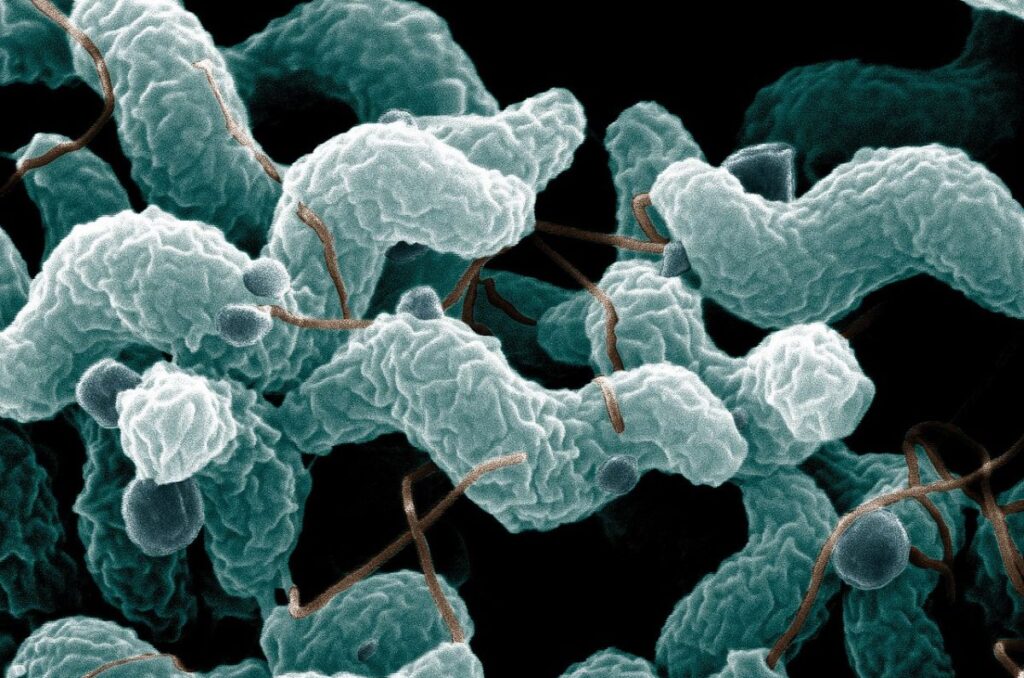
Importance of Soil Microorganisms
People who rely heavily on synthetic fertilizers often overlook the actual health of their soil. They don’t care about organisms in their garden, just the nutrients that are going in.
But I’ll tell you that no matter how much Miracle-Gro you put into your garden, you won’t have healthy soil. You just won’t. Because that’s not what contributes to healthy soil.
Microorganisms in your soil are actually what make healthy soil. It’s very simple.
It’s often found that the higher quantity and diversity of beneficial microbes in your soil, the healthier your plants will be. Quantity and diversity.
But are microbes in the soil or do you have to add them? Well, both.
Yea, there’re microbes in your soil already. I mean, that’s just the nature of nature. But are they as numerous and diverse as we want? Probably not.
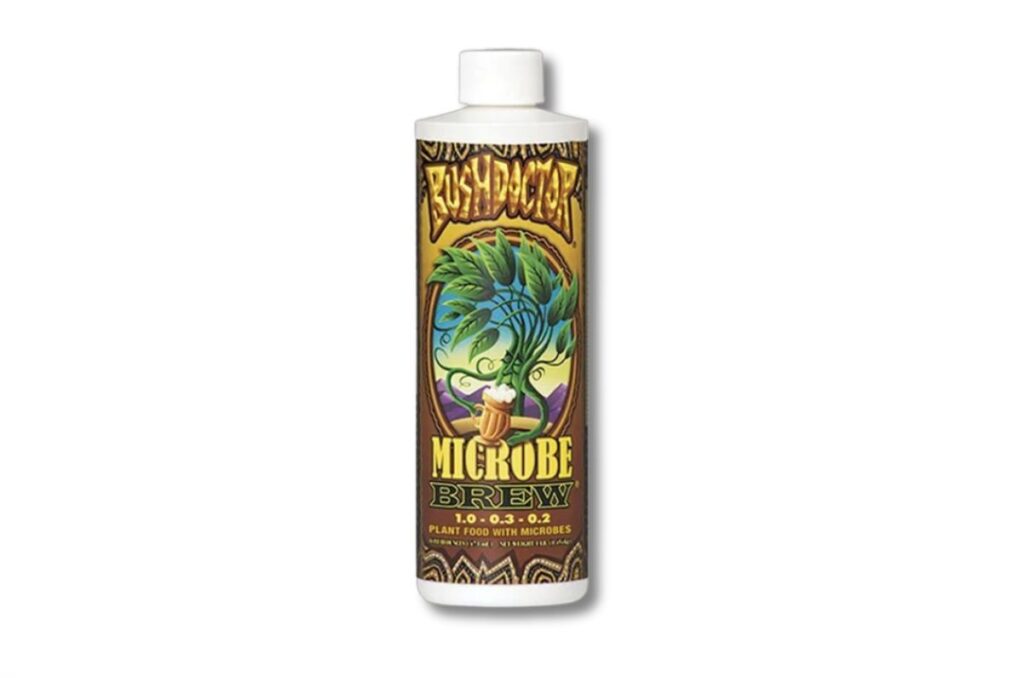
So there are ways that you can actually add microbes into your soil. They have products for this, like FoxFarm microbe brew, that add microbes directly to your soil.
Just dilute a bit with water and soak your soil.
You should also be using lots of compost or manure. These contain millions of microbes that populate your soil and help your plants.
Remember when I said that organic fertilizers are not bioavailable to your plants right away? That’s what microbes do. They break down the fertilizer into a bioavailable form so your plants can actually absorb them.
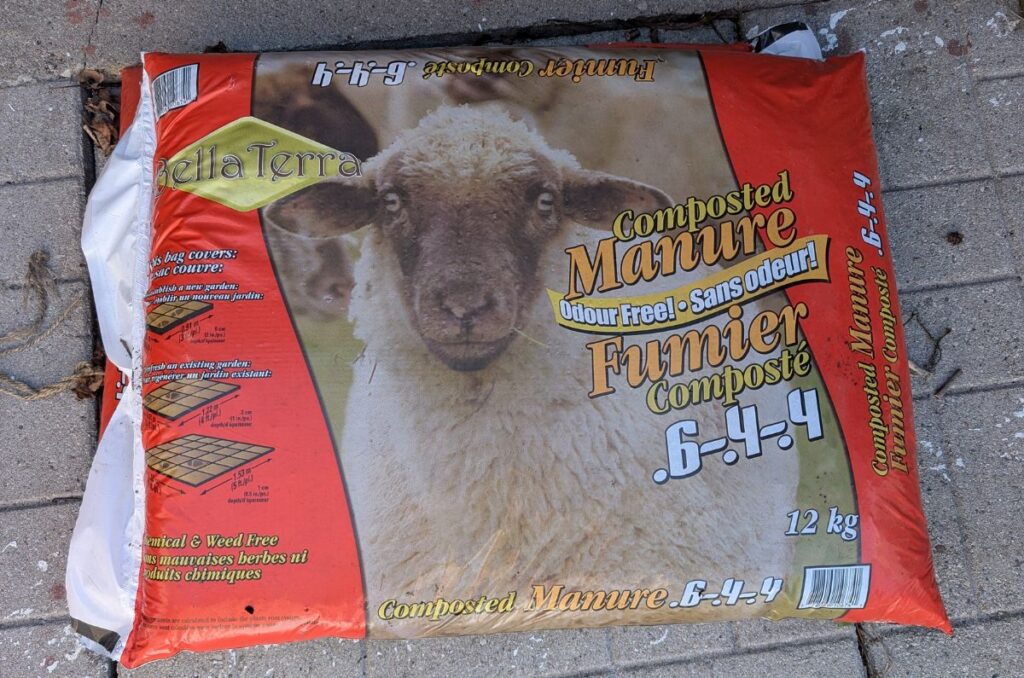
Importance of Organic Matter
Again, adding a bunch of fertilizer to your soil won’t do anything in the long run. It won’t fix your soil, it won’t fix your plants, it won’t fix your marriage.
But even if you add a bunch of microbes to your soil; if you don’t feed them, they’ll just die and all that was for nothing.
Microorganisms eat organic matter. Mulch, manure, compost, leaves, and food scraps are the main food sources for microorganisms.
They eat these materials and convert them into bioavailable nutrients that your plants can actually absorb.
Add a bunch of compost or manure to your soil to help feed the soil microbes.
If you don’t do this, the microbes will die. That’s it.
Stop Searching for a “Raspberry Fertilizer”
Commercial fertilizer products that have the phrase “raspberry fertilizer” really get me upset.
Here’s a little industry secret: most of those super specific fertilizers are just all-purpose blends repackaged and renamed in different bags.
They write “for raspberries” on the front of the bag, increase the price, and hope you won’t notice.
There’s nothing inherently different about them that makes them a “raspberry fertilizer.” There just isn’t. Don’t fall for it.
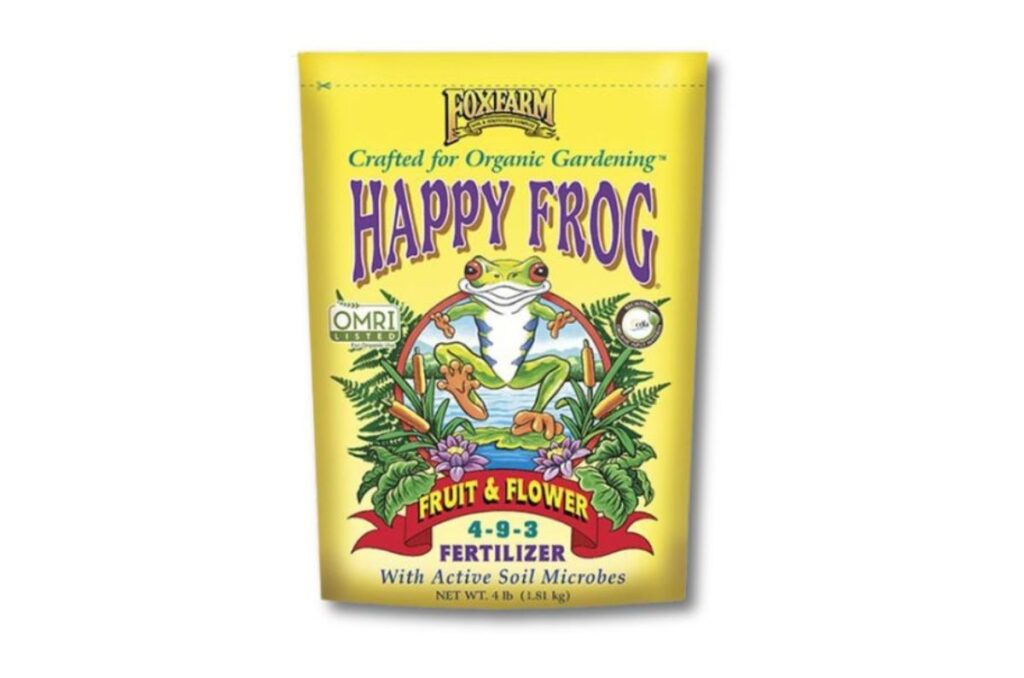
The Only Raspberry Fertilizer You Need
Most people have heard of FoxFarm. They have their Happy Frog and Bush Doctor lines with amazing organic fertilizer products.
If you want fertilizers that work, like actually work, then make sure to check them out because it turns out they make a great fertilizer for raspberry plants.
FoxFarm fruit and flower granular fertilizer is the perfect fertilizer for flowering and fruiting crops, especially raspberries.
This fertilizer meets raspberry needs
With an NPK ratio of 4-9-3, this fertilizer is perfect for the growth and development of healthy raspberry plants.
I did say that NPK doesn’t matter, but only in the grand scheme of things. If the NPK was something like 5-8-3, it’d still be good.
I never stress about a perfect NPK, but the phosphorus and potassium is great for heavy fruiting. Plus, the nitrogen will fuel all that leafy growth.
It’s not front-loaded with nitrogen like a lawn fertilizer, it’s actually made for fruit production.
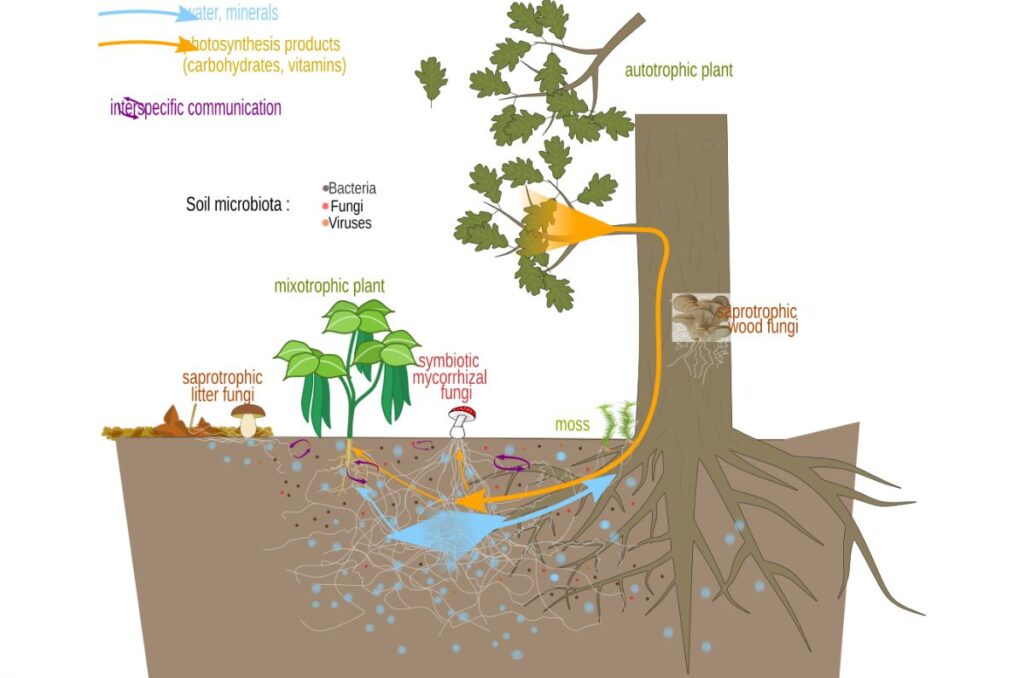
It’s loaded with microorganisms
Not only does it have nutrients, but it also has beneficial microorganisms. They’re called mycorrhizal fungi and they’re great for perennial plants.
It’s not crap; they’re necessary to break down nutrients into bioavailable forms for your plants. And it’s great that the fertilizer already has them inside.
These fungi will reproduce and colonize your soil. They form symbiotic relationships with plants and actually help them absorb water and nutrients. Isn’t that crazy?
They break down organic matter into bioavailable nutrients and transport it directly to your plants. That’s definitely worth it in my opinion.
You can use it for other plants
Like I said, it’s not one of those recycled “raspberry fertilizers” that really don’t do anything special.
It’s made for all flowering and fruiting crops. This includes tomatoes, eggplants, squash, blueberries, peppers, strawberries, and so many other plants.
It’s the kind of fertilizer you buy once and use for your entire garden. And that’s how it should be.
So don’t hesitate to pick up FoxFarm fruit and flower fertilizer to fertilize all your raspberry plants this year.

When to Fertilize Raspberries
Don’t overcomplicate this. It’s simple.
Here’s how I like to do it; nothing complicated:
- Early Spring: Wait until you start to see the first shoots appear. Don’t be cheap; put a bunch in there and scratch into the top inch of soil. Then add your compost, mulch, and water. Some people do it right when the ground defrosts before new growth appears, but this just means that more fertilizer will wash away before your plants can use it.
- Mid Season: Once you see the first flowers appear, then you know you have to fertilize again. They’ll be using a lot of nutrients at this time, so again, don’t be cheap. Part the mulch, throw a bunch in there, scratch it in, put the mulch back, and water.
That’s it. FoxFarm fruit and flower fertilizer is perfect for these applications.

Some people say to fertilize again in the fall. The problem is that your plants won’t even use those nutrients before the ground freezes and they go dormant.
Don’t dump fertilizer on your plants in the fall; it’ll just wash away and you’ll waste it.
I heard someone else say one time, “Don’t fertilize raspberries past June!” What? Are you kidding? Why can’t you fertilizer raspberries past June?
They’re still growing and God knows that’s when they produce the most fruit. So why wouldn’t you fertilize past June? Makes no sense to me.
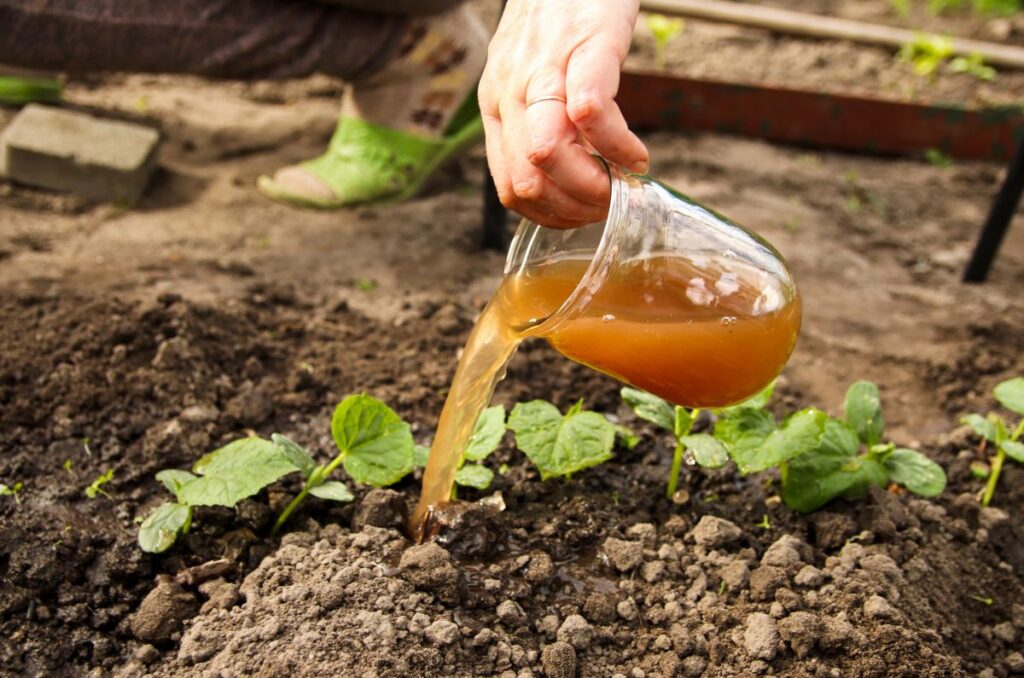
Is Liquid Raspberry Fertilizer Good?
If liquid raspberry fertilizer is the only thing you have, then I guess it’s ok.
The only problem is that you’ll have to fertilize so often during the growing season because raspberries are heavy feeders.
Liquid fertilizers often don’t give this kind of nutrition and they don’t stay in the soil for as long.
FoxFarm fruit and flower fertilizer is granular, meaning it’s dehydrated and ground up. It’ll stay in the soil for a long time, releasing its nutrients slowly as it gets broken down.
Plus it’s a hassle to manually water your garden with a watering can every other day just to fertilize. Nobody wants to do that.
Frequently Asked Questions
Blood meal and bone meal can be good for raspberries because of the nitrogen and phosphorus. The only problem is that it has no potassium, which is essential for healthy fruits. FoxFarm fruit and flower fertilizer has nitrogen, phosphorus, and potassium for optimal growth.
People that put coffee grounds in their soil because it adds nitrogen don’t know what they’re doing. Yea, they have nitrogen, but they have to be broken down first. This process will take a while, so the nutrients won’t be available to your raspberry plants right away.
Small raspberries are mostly caused by uneven watering, but it can also be caused by insufficient nutrients. Make sure you’re using FoxFarm fruit and flower fertilizer and watering often to keep the soil moist.
This is one of those fertilizers that you use on your lawn, not your vegetable garden. Always be weary of balanced NPK fertilizers because plants don’t use nutrients in that ratio. They have different needs for each nutrient.
Again, leave the 20-20-20 fertilizer for your lawn. Raspberries don’t need that crap. Just use FoxFarm fruit and flower fertilizer and you’ll be good.
Even More Gardening Ideas
Here are a few more posts to get the ball rolling in your garden!
- Tomato Plant Spacing Doesn’t Matter. Do This Instead
- Planting Bare Root Raspberries in Spring
- Is Window Light Enough for Seedlings?
If you liked this article, make sure to share it with your friends and family members who are also looking to sharpen their gardening skills. Also, consider signing up for our email newsletter; don’t worry, we won’t send you spam, just fresh gardening ideas every week!
If you want to learn more about vegetable gardening, make sure to check out what I’m doing on Facebook, YouTube, and Pinterest.
Pin this post for later:
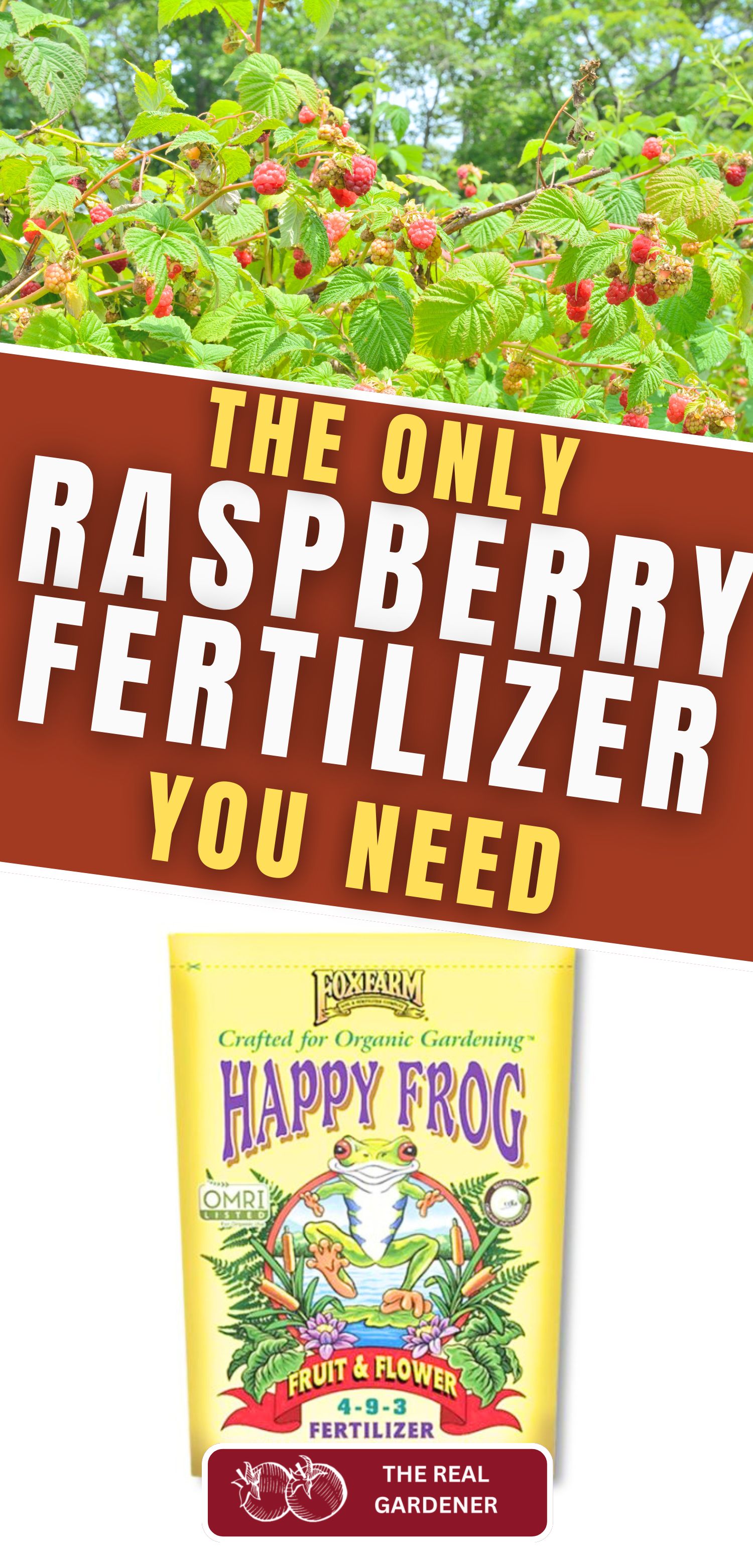
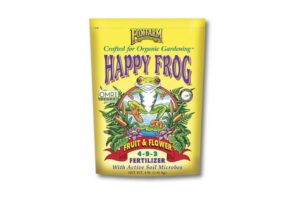
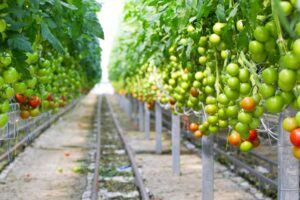
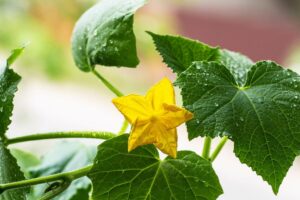
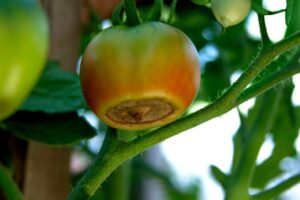

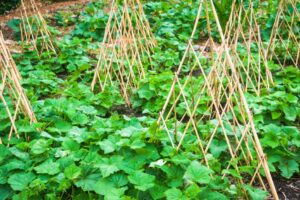
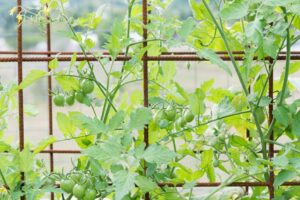
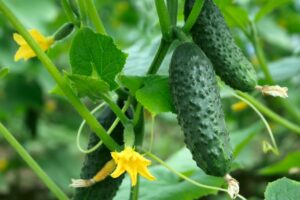
It’s so helpful to find one go-to solution that gardeners can trust. I appreciate how this fertilizer is explained in detail, from nutrient content to application tips. It’s reassuring to know that healthy, flavorful raspberries are just one product away!